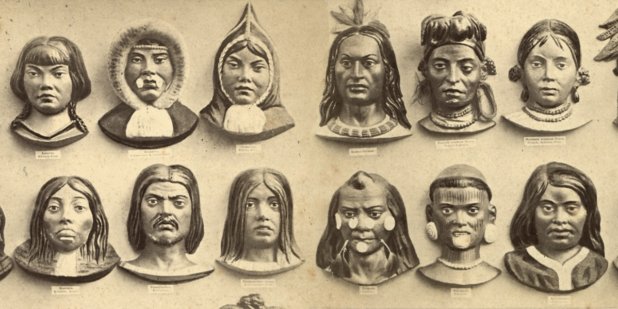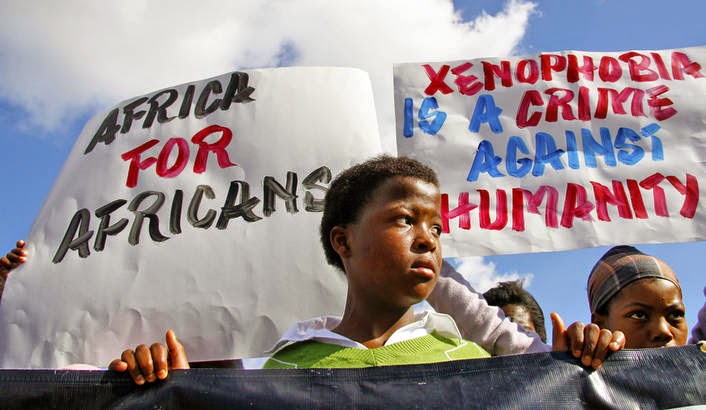- About
- Topics
- Story
- In-Depth
- Picks
- Opinion
- News
- Donate
- Signup for our newsletterOur Editors' Best Picks.Send
Read, Debate: Engage.
South Africa experienced a spate of brutal and horrific xenophobic violence against foreign nationals in April 2015. The attacks broke out in the Isipingo and KwaMashu townships in Durban before spreading to the volatile townships of Primrose and Alexandria in Johannesburg.
The violence mostly affected nationals from Zimbabwe, Mozambique, Malawi, Zambia, Nigeria, Somalia and Ethiopia who had fled the political and economic crises in their home countries.
In what seemed like the scenes of a horror movie, the violent mob searched for foreigners in the high density slum residences and in the central business district of Durban. They lit up many of the shacks belonging to foreigners. Those foreigners that were captured were subjected to horrific beatings which led to several deaths and left many injured.
Although the actual number of the foreigners that died remains unknown, the authorities have relied on the police figures which claim that only eight people died. Many of the accounts from victims and eye witnesses suggest that a larger number of casualties are highly probable.
Tinevimbo Shoko, a Zimbabwean who resided in the KwaMashutownship when the violence broke out believes that more than eight people met their deaths during this tragic period.
“A lot of people died in the shacks in Isipingo and KwaMashu townships here in Durban,” lamented Shoko.
Other eye witnesses maintain that a greater number of people than that which was reported was both shot and hacked to death in Pinetown and other surrounding areas.
“A lot of people were struck with machetes and knives. More than ten people were shot by the attackers in Pinetown. Those who were lucky managed to be rushed to hospitals and survived,” said SikhumbuzoSigola, a Zimbabwean immigrant living in Isipingo, Durban.
“The attackers came into the area and asked if any foreigners lived in our compound. They commanded all the locals (South Africans) to leave so that they could ‘fix’ us for being in their country. They thrashed a lot of people and burnt our dwellings,” narrated a traumatised Shoko.
In interviews with Fairplanet, the victims claimed that a lot of people were killed and tortured but that their cases had not been recorded by the police and the media.
The xenophobic perpetrators even unleashed their terror on fellow South Africans who harboured foreign nationals in their compounds.
“The attackers warned us against hiding the foreigners in our houses," related a distraught DuduzileMkize, a South African national residing in the most volatile township of KwaMashu in Durban, South Africa.
“Those who dared protect their foreign relatives and friends were beaten and had their dwelling shacks (most poor South African urban dwellers reside in plastic shacks where the violence was more widespread) burnt by the mobs,” explained Mkize.
“We did not sleep at home for more than two weeks, we were afraid the attackers would kill us since I worked for a Malawian family. My children did not go school and for our safety we went to our rural home,” Mkize further recounted her ordeal.
The xenophobic attacks sent shivers down the spines of even those that were in South Africa legally such as tertiary students.
A Zimbabwean tertiary student studying in Durban, GugulethuMlilo* (Not her real name) said the situation was so bad that even students feared for their lives.
“We stayed in our rooms on campus for more than two weeks as we were afraid that the violence could rapidly spread to campus. We avoided making use of public transport since the attackers were stopping and searching all public commuter buses for foreigners,” said Mlilo
Many of the survivors of the attacks cannot go back to their former settlements as they fear for their lives and have since been accommodated in different places on the farms surrounding Durban and Johannesburg.
Why xenophobia?
South Africa has witnessed a number of xenophobic attacks since 2008. Xenophobia is a fear of or hatred for foreigners. The recent attacks have led to a canny nicknaming of the phenomena within the context of South Africa as ‘Afrophobia’, that is the fear of and hatred for Africans not of South African origin. The locals blame foreigners for taking away their jobs and women as well as for the high youth unemployment and widespread criminal activities.
The recent bout of xenophobic violence that broke out in the Kwazulu-Natal province of South Africa has been linked to the utterances by the influential and well-respected Zulu king Goodwill Zwelithini.
While addressing his followers in Kwazulu-Natal, the king told foreigners to go back to their countries.
“When foreigners look at them (South Africans) they will say let us exploit the nation of idiots. As I speak, you find their unsightly goods hanging all over shops, they dirty our streets. We cannot even recognise which shop is which, there are foreigners everywhere.... As king of the Zulu nation...I will not keep quiet when our country is led by people who have no opinion. It is time to say something. We ask foreign nationals to pack their belongings and go back to their countries”, said theZulu king Goodwill Zwelithini to the applause of his audience.
“I know it is hard for other politicians to challenge this, because they are after their votes. Please forgive me but this is my responsibility, I must talk, I cannot wait for five years to say this,” he added.
Reactionsfrom neighbouring countries
The attacks on foreign nationals received condemnation from neighbouring countries. South African businesses in Mozambique and Malawi closed down in retaliation for weeks due to threats from the citizens in these countries. The diplomatic rupture
between South Africa and Nigeria erupted again with the former recalling their ambassador in protest.
The President of Zimbabwe, Robert Mugabe, who is also the chairman of the African Union (AU) and the Southern African Development Community (SADC) described the attacks on foreigners as shocking and disgusting.
"I want to express our sense of shock and disgust ... The act of treating other Africans in that horrible way can never be condoned by anyone," said Mugabe while addressing scores of people at Zimbabwe’s heroes acreduring the country’s independence celebrations.
"And whether these are followers of the Zulu king Zwelithini or the followers of some other misled members of the South African community ... that must never happen again, never happen again in South Africa or any other country," rebuked Mugabe.
Public Relations
The South Africanminister of home affairs, MalusiGigaba, was reported in the South African Mail and Guardianas acknowledging that the xenophobic attacks had created a rift between South Africa and her neighbours across the African continent and beyond.
"The international community must not view South Africa as a xenophobic and Afro-phobic country.... And Africa in particular must not think that we hate fellow Africans so much that we are prepared to do the worst to cause them harm. We are taking steps to address this," said Gigaba.

